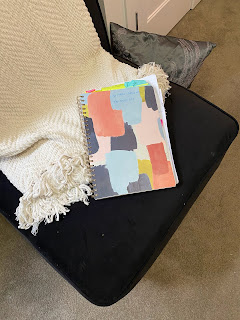Ask most fiction writers when they last wrote a poem and they'll probably look up from their laptops and shrug. Writing poetry and even reading it isn't the first thing that comes to mind when you're trying to develop a novel. You're far more likely to get into tutorials about plot structure, "sign post outlining", story arcs and plot points.
But it's too easy to get bogged down with all this and forget about the beauty of language and the excitement of risk-taking with vivid imagery and adventurous metaphors and similes. That's what poetry is all about. Maximum impact with minimum words. Reading poetry and experimenting with it yourself can sharpen up your own writing and make it fresh, bold and original again.
I'm not claiming to be a great poet but I've used it in several ways to help me along with novels. It's like giving your story a shot of adrenalin. here are some ways it helps:
It can sharpen up a setting and make the atmosphere more vivid. I wrote this little prose poem when I first started THE PITMAN'S DAUGHTER. It really helped me get the feel of the street:
Brick
terraced houses wind upwards in two straight rows towards flaming red sky at
the pit end of the street. Giant black wheel cranks the winding gear that
sends the cages of men underground. Smoke from morning coal fires hangs in
a greyish haze while down on the street a ragged toddler pulls up her skirt and
tries to piddle against the wall like a boy. Children run barefoot or in dog-eared
boots. Splashing through puddles, they follow the clank of the milkman’s cart. Kettles sing and steam on hobs and
mantel clocks tick away the hours. Gossips lean meaty arms over wooden gates to gossip the day away until wet-skin washing flaps itself
dry.
It can also help you find the right words to create a mood. Here's one I tried with a thriller I'm currently working on:
Night Images
Night train shuffles in the distance
Orangy black clouds
Trees grouped in threes
threes threes
Black leaves rustle
like old pennies
Inky water
Smells of bleach and wet skin
Your breath clouds
Body breaks
Salt sweat salt
sweet
Footprints on damp grass
silhouettes of chimneys
A half-folded umbrella
Splayed ribs
Pale bones
Your hand sticky
with dew
Now I'm not sure how much of this I'll use in the actual novel but some of the images will definitely help to create a particular mood. The thing about poetry is that when you're writing it, you tend to be more adventurous with words, something you forget when you're trying to develop a story. So every now and then it's really helpful to break away from that dialogue and just try to get to those crazy, out of the box images. It'll liven up your writing .
And if you simply want to read or listen to poetry here are some great resources on the web:
Listen to Sylvia Plath reading her poem Daddy. Incredibly powerful!
Or Charles Bukowski reading Bluebird. An amazing reflection on the emotional repression of men!
Or, I challenge you to listen to this poem without tears coming to your eyes - Tonight I Can Write the Saddest Lines by Pablo Neruda and read by the gorgeous Andy Garcia. Best love poem ever!
There are so many great readings on YouTube. Forget about dancing dogs and talking kittens and try a few!











